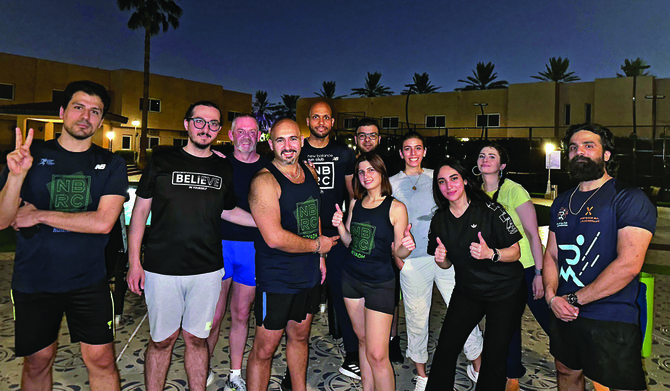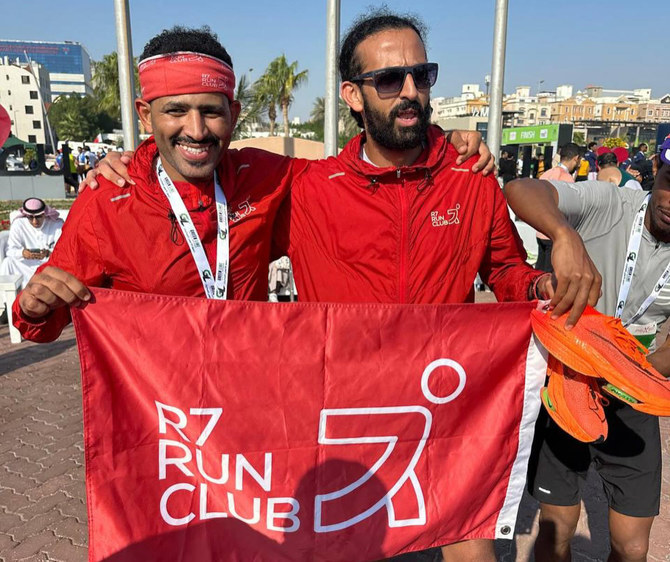RIYADH: For many, summer in Saudi Arabia is a time to relax on the couch, turn up the air conditioning, and watch other people play sports on TV, with those who dare to challenge this approach often ending up with heatstroke.
Yet, running clubs in the Kingdom are busier than ever, and show no sign of slowing down anytime soon.
Seema Ghannam, who regularly takes part in Riyadh Road Runners club sessions, told Arab News: “You can keep active wherever you are. There is no limit to movement anywhere you go because you already have hands, arms, and legs. This is what you are born to do, to keep moving.”
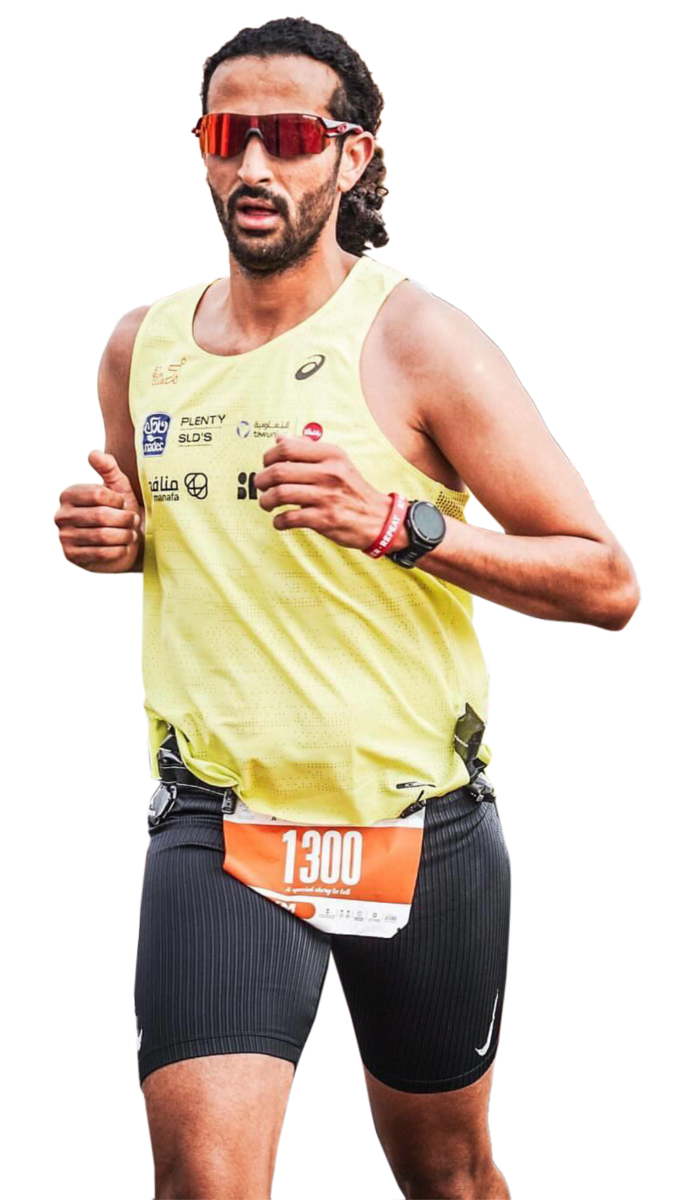
R7 runs in Wadi Hanifa, where the location offers protection against the heat. (supplied by R7)
Until recent years, physical activity in the Kingdom was almost nonexistent outside of schools and designated football teams. People were discouraged by the lack of facilities, suitable outdoor spaces, and the hot weather. Now, all that is changing. From the growing number of padel courts to the new projects at Sports Boulevard, physical activity is soaring, and running is no exception.
To find out how these runners manage to keep up their routines in the heat, Arab News visited Riyadh Road Runners, established in 1978, at one of the club’s 7:30 p.m. Monday sessions at the Eid Villas Compound. Runners were doing laps, climbing stairs, and completing full-body workouts.
The group, made up of a variety of ages and nationalities, began with a warmup before moving to strength training and then running laps around the court, focusing on proper technique.
FASTFACTS
• Until recent years, physical activity in the Kingdom was almost nonexistent outside of schools and designated football teams.
• Now, all that is changing. From the growing number of padel courts to the new projects at Sports Boulevard, physical activity is soaring.
Coach Amr Hafez has the runners break up their runs occasionally with bodyweight and stair exercises to increase stamina and muscle strength. The session ends with a final lap around the whole compound. At the end of a very sweaty workout, the runners take a dip in the pool to cool down.
Ghannam, who is also a yoga teacher and swimming instructor, added running to her exercise routine two years ago. She said that she enjoys Hafez’s holistic approach to the body, training the abs, hips, glutes, and thighs.
“We focus on trying to learn different kinds of running, how to run, how to place your toes, what shoes you should use.”
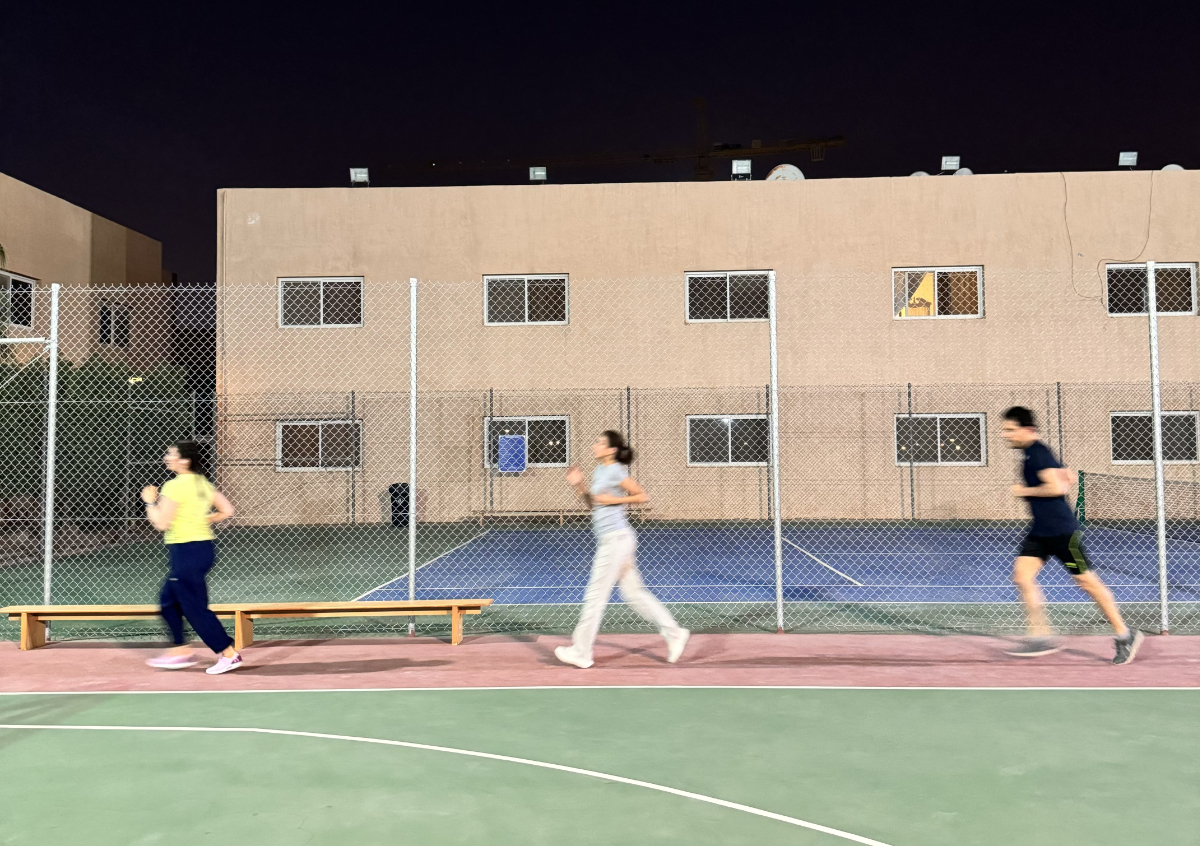
Riyadh Road Runners, Eid Villas Compound. (Photo by Mayas Al-Ahmadi)
Ghannam said that she enjoys running outdoors because “you want your skin and your body to get used to the temperature.” But to manage the heat, runners should choose a time that is best for them, whether at night or early in the morning.
Hafez, a national sales manager at a Saudi food company, has coached with Riyadh Road Runners for more than three years. He has three key rules when it comes to running in summer. One is to stay well hydrated, two is to control your breathing, and three — much to our dismay — is high-intensity interval training.
The coach said that when he first started running, he used martial arts moves as part of his training, a fitness trick he learned from his first running coach.
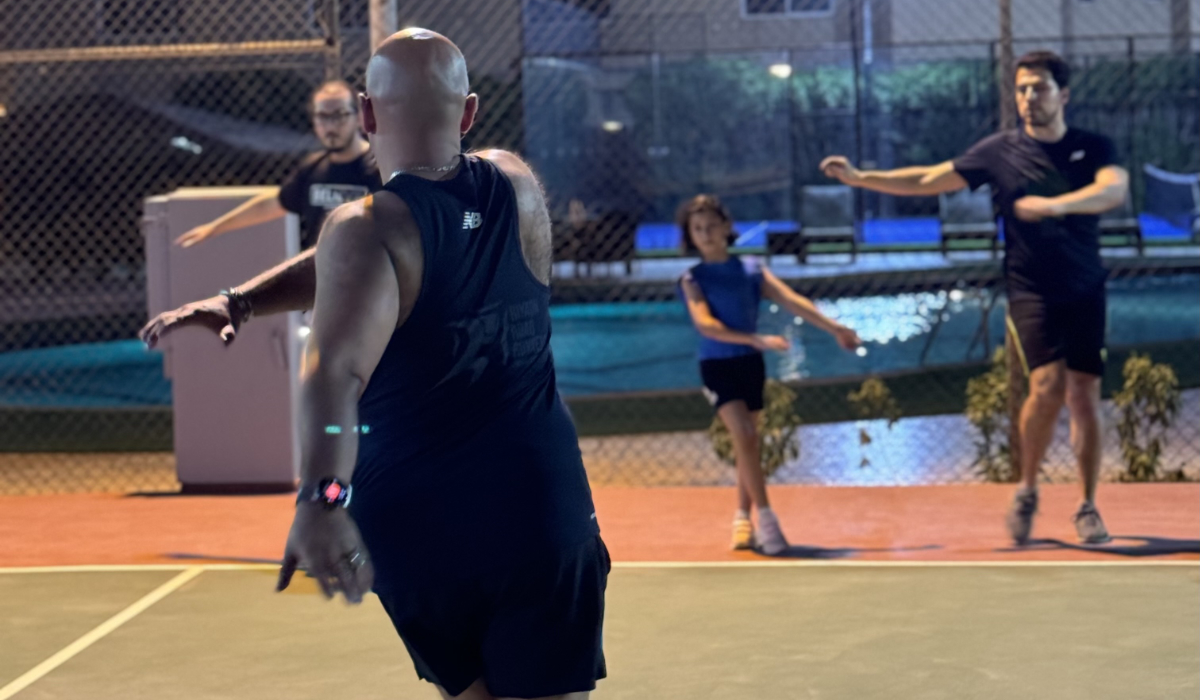
Riyadh Road Runners, Eid Villas Compound. (Photo by Mayas Al-Ahmadi)
“Runners need to build all their muscles to have great ability,” he said. “Combining strength with fitness helps people develop running ability for doing long distance.”
Hafez said that he used to think running served no purpose, and was simply a means of punishment when a school coach thought someone was slacking off. He never imagined he would one day run a marathon or be teaching other people to do the same.
“Most of the team when they first started couldn’t jog even 1k,” he said.
Omar Al-Ansari, a coach with Riyadh club R7, has six marathons under his belt. R7 runs in Wadi Hanifa, where the location offers protection against the heat.
“The trails are naturally shaded by the trees, and the breeze from the lake provides a 3–4-degree difference in temperature from the rest of the city,” he said.
Like Riyadh Road Runners, R7 emphasizes staying hydrated. “Always run with water, take electrolytes to preserve what is being lost through sweating,” Al-Ansari said.
He also advises runners to wear light-colored clothing, to complete their workouts before sunrise or after sunset, and to choose a garden or wadi as a location, or exercise indoors.
“And never forget your sunscreen,” he added.
Many runners told Arab News there is no longer any excuse for being inactive in the Kingdom.
“We are seeing a broader awareness about the importance of having an active lifestyle in the country, and despite our difficult weather in the summer, there are ways to go about it,” Al-Ansari said.
Hafez offered Arab News this simple suggestion: “Start by walking and go from there.”


